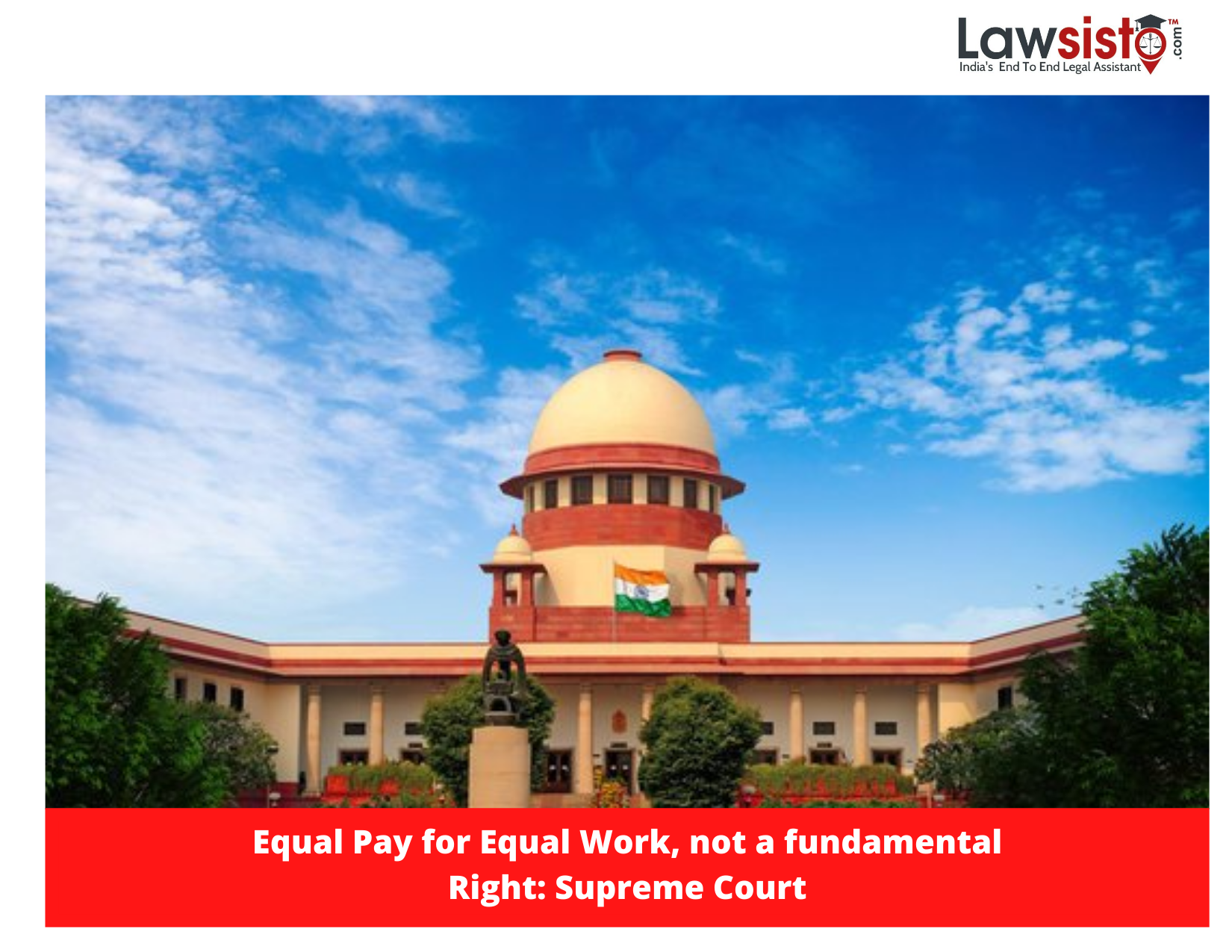Latest News
Equal Pay for Equal Work, not a fundamental Right: Supreme Court

The Supreme Court of India, on Thursday, remarked in a judgment that, “Equal Pay for Equal Work” is not any fundamental right vested in any employee, though it is a constitutional goal to be achieved by the government. The Supreme Court held in the case of State of Madhya Pradesh VS. RD Sharma.
The bench comprising of Justice D.Y. Chandrachud and Bela M. Trivedi observed that the equation and calculation of pay scales is not the job of the judiciary, it has to be done by the executive only. Therefore, the court of law will not ordinarily enter upon the task of job evaluation. Further, the court added that the task of job evaluation is generally left to the expert bodies like Pay Commissions.
In this case, the writ petitioner before the High Court of Delhi is a retired Principal Chief Conservator of Forest (PCCF). He demanded a revision of his pension from RS.37,750/- to RS.40,000/-, as per the Indian Forests Service (Pay) Second Amendment Rules, 2008. This representation of the petitioner was rejected by the Government of India.
The petitioner on rejection of his representation by the central government approached the Central Administrative Tribunal, which further dismissed his original application. Later on, the High Court allowing the writ petition held that he was eligible to get the benefit of RS. 40,000 as pension at par with other officers, as per the rules of 2008.
In an appeal filed by the State, the apex court noted that the High Court has completely misdirected itself by applying the principle of “equal pay equal work”. The case of the State of Punjab and Ors. Vs. Jagjit Singh and Ors. (2017 SCC 148), has no application to the facts of the present case which was decided upon by the apex court.
The Counsel for the petitioner state, in this case, argued that the benefit of an up-gradation of one existing person cannot be given to the person who has already retired from his post. The Counsel cited Krishnaswamy & Ors. VS. Union of India & Ors.
Further, the apex court noted after referring to the relevant rules that, the tribunal has rightly rejected the claim made by the appellant. In its decision, the Tribunal has not committed any judicial error, nor had any failure of justice been made. Hence, the court while allowing the appeal said that the interference of the High Court in the order passed by the tribunal is not justified.
The Apex Court rightly with just and proper order concluded that the order passed by the High Court by wrongly setting aside the decision of Tribunal on extraneous grounds by applying the rule of “equal pay for equal work”. The High Court passed this order while exercising its power of superintendence under Article 227 of the Constitution. The first question of using Article 227 was raised by the Supreme Court to find out whether the High Court was misdirected or not.



































































































